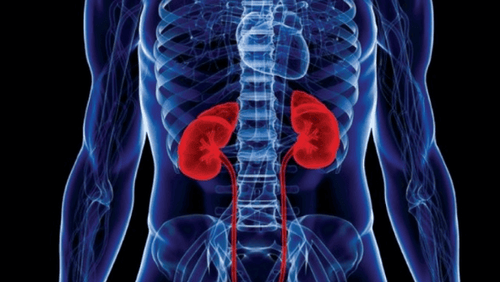Contrast agents in medical imaging are an advanced technique used in computed tomography (CT), magnetic resonance imaging (MRI), and ultrasound. These agents allow doctors to detect abnormalities inside the body and diagnose various conditions. So, do contrast agents in medical imaging cause side effects?
1. What are Contrast Agents and How Do They Work?
Contrast agents are used in medical imaging by being introduced into the body prior to the imaging procedure. These agents temporarily alter the color of specific parts or tissues in the body, helping to distinguish the "contrast-enhanced" areas from the surrounding regions. Contrast agents enter the body through one of three methods: orally, via rectal injection, intravenously, or intra-arterially.
In X-ray imaging and computed tomography (CT), the commonly used contrast agents are compounds containing iodine and barium sulfate. These compounds have the ability to block or reduce the penetration of X-rays. In magnetic resonance imaging (MRI), the contrast agents typically used are primarily composed of gadolinium. In ultrasound and cardiac imaging, the main contrast agents are saline and gas.
2. Are the side effects of contrast agents dangerous?

In general, contrast agents are considered safe because they can be eliminated through urine or feces. However, patients may experience some side effects, ranging from mild to severe. Serious reactions related to contrast agent side effects are very rare. The specific side effects depend on the type of contrast agent used.
2.1 Side Effects of Barium Sulfate Contrast Agents
Individuals with a history of asthma, allergies, cystic fibrosis, severe dehydration due to constipation or other causes, intestinal obstruction, or perforation are at a higher risk of experiencing adverse reactions from barium sulfate contrast agents.
The side effects of barium sulfate contrast agents include: stomach cramps, diarrhea, nausea, vomiting, and constipation. If these symptoms become severe or persist, or if you experience itching, red skin, swelling of the throat, difficulty breathing or swallowing, hoarseness, agitation, confusion, rapid heartbeat, or pale skin, contact your doctor as soon as possible for prompt treatment.
2.2 Side Effects of Iodine-Based Contrast Agents
Patients may experience side effects from iodine-based contrast agents that range from mild to severe. Most patients may develop a mild rash a few hours after receiving the contrast agent. In severe cases, it is important to consult with a doctor as treatment may be necessary.
Mild reactions include: nausea and vomiting, headache, itching, flushing, and mild rash. More severe side effects can cause serious skin rashes, wheezing, abnormal heart rhythms, high or low blood pressure, shortness of breath, or difficulty breathing. Severe side effects of contrast agents may include symptoms such as difficulty breathing, cardiac arrest, swelling of the throat or other parts of the body, seizures, and low blood pressure.

Attention should be given to the risk of kidney disease due to the side effects of intravenous or intra-arterial iodine-based contrast agents. In patients with pre-existing kidney function issues, kidney conditions may worsen within a few days after using the contrast agent. If you have impaired kidney function, your doctor will assess the risk-benefit ratio to determine the appropriate course of action.
2.3 Side Effects of Gadolinium-Based Contrast Agents
Some kidney disease patients who undergo magnetic resonance imaging (MRI) with gadolinium-based contrast agents may develop nephrogenic systemic fibrosis (NSF). NSF is the thickening and scarring of connective tissue in the kidneys. Although this is a rare complication, patients with severe kidney disease should avoid gadolinium-based contrast agents.
3. When do allergic reactions to contrast agents occur?
Allergic reactions to contrast agents have occurred in some clinical cases. Therefore, it is important to share with your doctor your history of allergies to contrast agents, food, medications, dyes, preservatives, animal products, and any medications you are currently taking, including herbal supplements.

Additionally, you should inform your doctor about your medical history, previous surgeries, or other health conditions, including a history of asthma, heart disease, diabetes, kidney disease, thyroid problems, sickle cell anemia, polycythemia, and myeloma. Furthermore, if you are taking medications such as beta-blockers, NSAIDs, interleukin-2, or have received a large amount of contrast agent within the past 24 hours, you should also notify your doctor to avoid potential drug interactions.
The side effects of contrast agents can pose potential risks to a fetus, especially with gadolinium-based contrast agents. Pregnant women should discuss with their doctor to choose an appropriate contrast agent before undergoing imaging.
Additionally, mothers should avoid breastfeeding for 24 to 48 hours after receiving intravenous contrast agents.
Contrast agents are used in certain diagnostic imaging techniques to help doctors observe internal body images, detect damage, and diagnose health conditions early. To ensure accurate imaging and minimize the side effects of contrast agents, patients should choose reputable medical facilities with good quality standards. In fact, there have been cases of acute kidney failure due to contrast agents.
With many years of experience in diagnosing and treating various conditions, Vinmec International General Hospital has become one of the major healthcare centers, capable of conducting exams, screenings, and treatments for many specialized conditions with excellent results. This success is due to Vinmec’s commitment to modern facilities and a team of highly skilled and experienced doctors.
If you need a medical examination and treatment, you can visit Vinmec International General Hospital for service.
To arrange an appointment, please call HOTLINE or make your reservation directly HERE. You may also download the MyVinmec app to schedule appointments faster and manage your reservations more conveniently.
Reference sources: radiologyinfo.org, webmd.com













